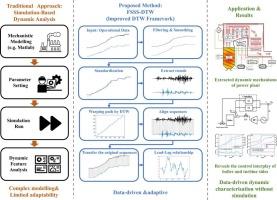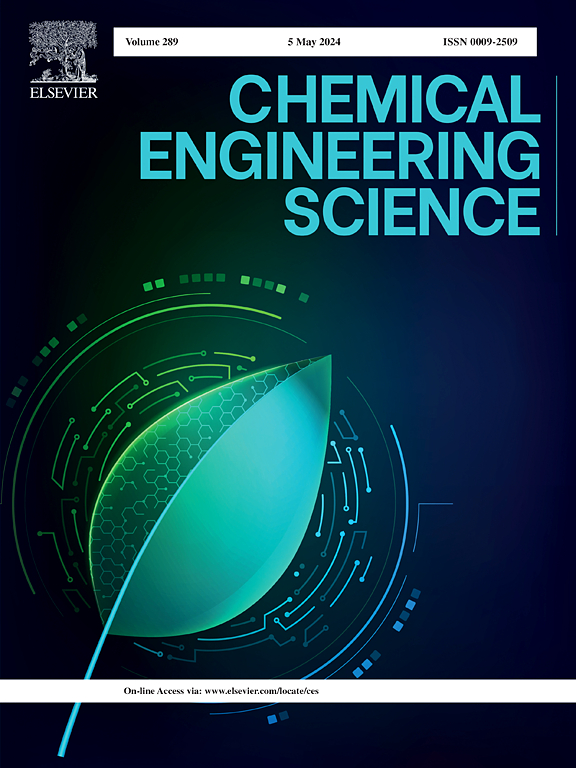基于改进DTW算法的燃煤电厂超前滞后分析数据驱动方法
IF 4.3
2区 工程技术
Q2 ENGINEERING, CHEMICAL
引用次数: 0
摘要
燃煤电厂负荷变化过程的动态特性对电厂安全、清洁、高效运行至关重要。然而,现有的方法很难捕捉关键操作参数之间的超前-滞后关系,特别是在负载变化过程中,动态时间翘曲(DTW)经常受到局部校准误差的影响。本研究提出了一种数据驱动的FSSS-DTW方法,该方法集成了滤波、平滑、标准化、基于形状的特征提取和改进阶跃模式,以减少对准误差,提高时间对准精度。利用330 MW亚临界燃煤电厂的运行数据验证了该方法的有效性,该方法在提取准确的超前-滞后关系和解释控制-响应动力学方面表现出优越的能力。结果表明,在负荷变化过程中,燃料输入始终滞后于蒸汽流量,而高压阀门开度表现出最小的滞后。对于能量流,在滑压模式下,锅炉换热器间焓变滞后于能量输入,而在恒压模式下,焓变领先于能量输入。该方法为动态分析提供了一种可扩展和可解释的工具,为汽轮机和锅炉子系统之间的协调机制提供了新的见解,并支持复杂能源系统的智能监控。本文章由计算机程序翻译,如有差异,请以英文原文为准。

A Data-Driven method for Lead-Lag analysis in Coal-Fired power plants using an improved DTW algorithm
The dynamic characteristics of coal-fired power plants during load change processes are essential for safe, clean, and efficient operation. However, existing approaches struggle to capture lead–lag relationships among key operational parameters, particularly during load change processes, where Dynamic Time Warping (DTW) often suffers from local alignment errors. This study proposes a data-driven method, FSSS-DTW, which integrates filtering, smoothing, standardization, shape-based feature extraction, and an improving step pattern to reduce alignment errors and improve temporal alignment accuracy. The effectiveness of the proposed method is validated using operational data from a 330 MW subcritical coal-fired power plant, where it demonstrates superior capability in extracting accurate lead-lag relationships and interpreting control-response dynamics. The results reveal that fuel input consistently lags behind steam flow during load changes, while high-pressure valve opening exhibits minimal lag. For energy flows, enthalpy changes across boiler heat exchangers lag behind energy input in sliding-pressure mode but lead in constant-pressure mode. The proposed method provides a scalable and interpretable tool for dynamic analysis, offering new insights into coordination mechanisms between turbine and boiler subsystems and supporting intelligent monitoring in complex energy systems.
求助全文
通过发布文献求助,成功后即可免费获取论文全文。
去求助
来源期刊

Chemical Engineering Science
工程技术-工程:化工
CiteScore
7.50
自引率
8.50%
发文量
1025
审稿时长
50 days
期刊介绍:
Chemical engineering enables the transformation of natural resources and energy into useful products for society. It draws on and applies natural sciences, mathematics and economics, and has developed fundamental engineering science that underpins the discipline.
Chemical Engineering Science (CES) has been publishing papers on the fundamentals of chemical engineering since 1951. CES is the platform where the most significant advances in the discipline have ever since been published. Chemical Engineering Science has accompanied and sustained chemical engineering through its development into the vibrant and broad scientific discipline it is today.
 求助内容:
求助内容: 应助结果提醒方式:
应助结果提醒方式:


